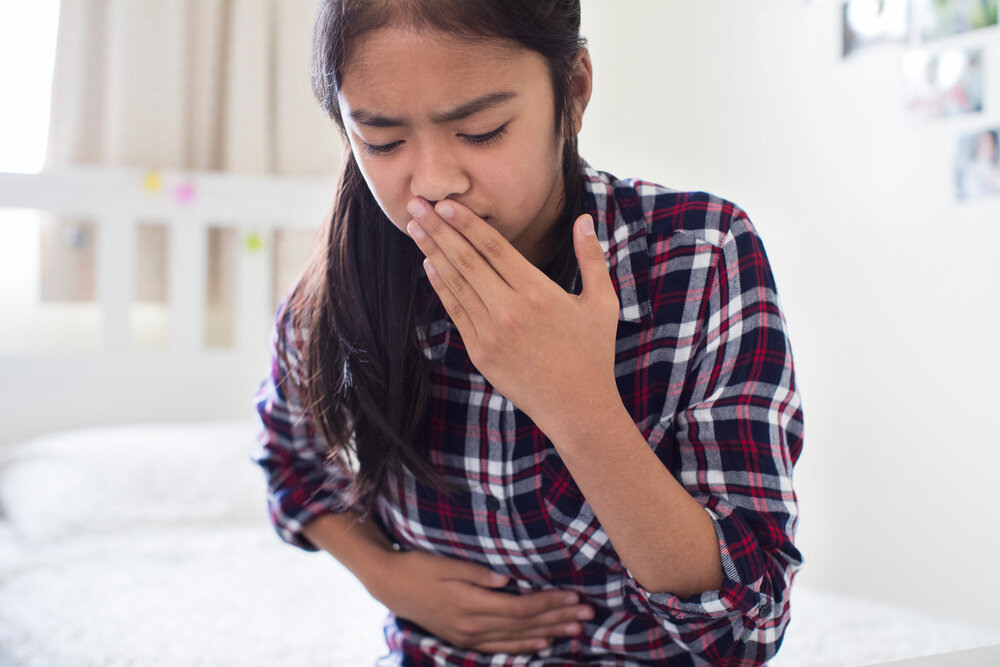Norovirus, often referred to as the “stomach bug,” is a highly contagious virus that commonly causes vomiting and diarrhea, particularly in young children. Outbreaks are especially common during winter months when kids spend more time indoors, making it easier for the virus to spread. Here’s what parents need to know about norovirus symptoms, how to manage it, and practical prevention tips to keep kids healthy.
1. Understanding Norovirus and How It Spreads
Norovirus is a resilient virus that can spread quickly through contact with an infected person, contaminated surfaces, or food and water:
- Highly Contagious: The virus spreads easily in settings like schools, daycares, and even at home, where kids are in close contact.
- Hard to Kill on Surfaces: Norovirus can survive on surfaces for days, making thorough cleaning essential.
- Spread Through Various Routes: Transmission can occur through direct contact, shared items, or consumption of contaminated food or water.
Knowing how norovirus spreads helps parents take steps to prevent exposure and reduce the risk of infection.
2. Recognizing Norovirus Symptoms in Kids
Symptoms of norovirus tend to come on suddenly and can be quite intense, especially in children:
- Vomiting: Often one of the first symptoms, vomiting can be frequent and may last up to a day or two.
- Diarrhea: Watery diarrhea usually follows vomiting and can lead to dehydration if not managed.
- Stomach Cramps: Children may complain of stomach pain or cramping as the virus irritates the digestive system.
- Fever and Body Aches: Some kids may experience a low-grade fever and general body aches as their immune system fights off the virus.
Recognizing these symptoms early allows parents to provide immediate care and help prevent the spread to others.
3. Managing Norovirus Symptoms at Home
Most cases of norovirus resolve on their own, but managing symptoms at home is essential to keep kids comfortable:
- Focus on Hydration: Offer small sips of water, electrolyte solutions, or clear broths to replace fluids lost from vomiting and diarrhea.
- Encourage Rest: Let your child rest as much as possible to help their body recover.
- Introduce Bland Foods Gradually: Once vomiting subsides, start with bland foods like crackers, rice, or applesauce to avoid further stomach upset.
- Monitor for Signs of Dehydration: Look for dry mouth, reduced urination, and lethargy, as these could indicate dehydration.
Providing gentle care and staying focused on hydration can help your child feel more comfortable as they recover.
4. When to Seek Medical Help for Norovirus
While norovirus symptoms often improve within a few days, there are times when medical help is necessary:
- Persistent Vomiting or Diarrhea: If symptoms continue for more than a couple of days or worsen, consult a healthcare provider.
- Signs of Severe Dehydration: Look for symptoms like dry mouth, sunken eyes, or decreased urination, especially in young children.
- High Fever or Severe Abdominal Pain: If your child experiences a high fever or intense stomach pain, it’s best to seek medical advice.
- Blood in Vomit or Stool: This is uncommon with norovirus and warrants a medical evaluation.
Knowing when to reach out for professional care ensures your child receives the support they need if symptoms are severe.
5. Practical Tips to Prevent Norovirus
Preventing norovirus in kids requires a combination of good hygiene, thorough cleaning, and a few lifestyle habits:
- Encourage Frequent Handwashing: Teach kids to wash their hands with soap and water, especially before eating and after using the bathroom.
- Disinfect Common Areas: Clean high-touch surfaces like doorknobs, light switches, and toys with a bleach-based disinfectant, as norovirus is resistant to many household cleaners.
- Avoid Sharing Food and Utensils: Encourage kids not to share drinks, food, or utensils, especially during cold and flu season.
- Stay Home When Sick: Keep kids home if they show symptoms of norovirus to prevent spreading the virus to others.
These prevention steps can go a long way in reducing the likelihood of norovirus spreading within the family and beyond.
Final Thoughts
Norovirus can be uncomfortable and challenging to manage, but by recognizing symptoms early and focusing on hydration, parents can help their kids recover more comfortably. Practicing good hygiene and keeping shared spaces clean are essential in preventing norovirus, especially in environments where kids are in close contact. With these simple precautions, parents can protect their families and help keep winter months healthier and more enjoyable for everyone.

